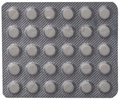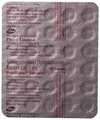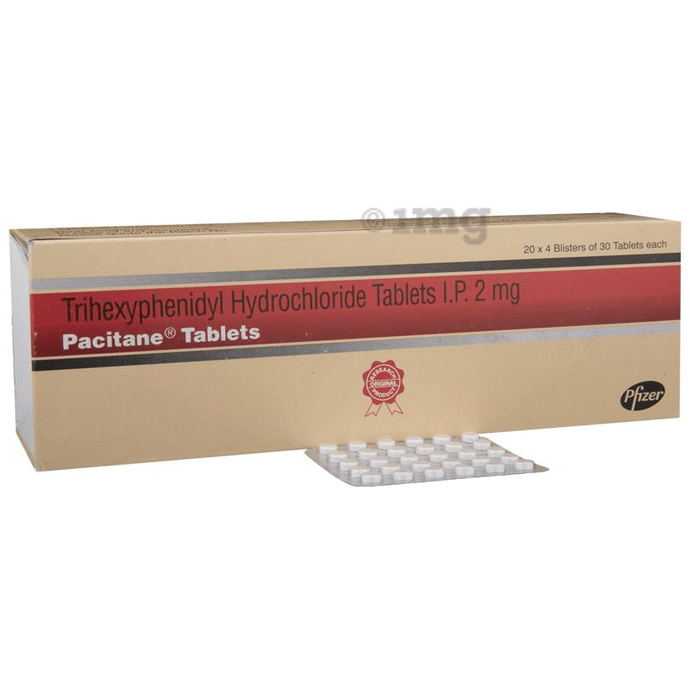- TOP CITIES
- New Delhi
- Gurgaon
- Pune
- Mumbai
- Bengaluru
- Kolkata
- Hyderabad
- Ahmedabad
- Chennai
- Indore
- Lucknow
- Jaipur
- Chandigarh
- Bhopal
- Noida
- Navi Mumbai
- Surat
- Patna
- Ludhiana
- Bhubaneshwar
- ALL CITIES
- Abohar
- Adad
- Adilabad
- Adoni
- Adsaidnakda
- Agar
- Agartala
- Agra
- Ahmedabad
- Ahmednagar
- Aizawl
- Ajmer
- Akola
- Aksjdhbaskjda
- Alappuzha
- Aligarh
- Alipurduar
- Alirajpur
- Allahabad
- Almora
- Alwar
- Ambala
- Ambattur
- Ambedkar Nagar
- Amravati
- Amreli
- Amritsar
- Amroha
- Anand
- Anantapur
- Ananthnag
- Anantnag
- Angamally
- Angul
- Ankleshwar
- Annur
- Anuppur
- Arakkonam
- Arambag
- Arantangi
- Araria
- Arcot
- Ariyalur
- Arwal
- Asansol
- Asdbakda
- Ashok Nagar
- Assaudh
- Attuvampatti
- Auraiya
- Aurangabad Bihar
- Aurangabad Maharashtra
- Aviyur
- Ayyangarkulam
- Azamgarh
- Badlapur
- Bagalkot
- Bageshwar
- Baghpat
- Bagpat
- Bahadurgarh
- Bahraich
- Baksa
- Balaghat
- Balangir
- Baleswar
- Ballia
- Bally
- Balrampur
- Banaskantha
- Banda
- Bangalore
- Bangalore Rural
- Banka
- Bankura
- Banswara
- Barabanki
- Baramati
- Baramulla
- Baran
- Baraut
- Bardhaman
- Bareilly
- Bargarh
- Barmer
- Barnala
- Barpeta
- Barrackpore
- Baruipur
- Barwani
- Basirhat
- Bastar
- Basti
- Bathinda
- Beawar
- Beed
- Begumganj
- Begusarai
- Behraghora
- Behrampur
- Belgaum
- Bellary
- Belur
- Bengaluru
- Betul
- Betul Ganj
- Bhadrak
- Bhadravati Karnataka
- Bhagalpur
- Bhandara
- Bharatpur
- Bharuch
- Bhatkal
- Bhavani
- Bhavnagar
- Bhilai
- Bhilwara
- Bhind
- Bhiwadi
- Bhiwandi
- Bhiwani
- Bhojpur
- Bhopal
- Bhubaneshwar
- Bhuna
- Bhusawal
- Bidar
- Bijapur Chattisgarh
- Bijapur Karnataka
- Bijnor
- Bikaner
- Bilaspur Chattisgarh
- Bilaspur Himachal Pradesh
- Birbhum
- Bishnupur
- Boisar
- Bokaro
- Bongaigaon
- Bongaon
- Botad
- Boudh
- Budaun
- Budgam
- Bukkapatnam
- Bulandshahr
- Buldana
- Buldhana
- Bundi
- Burdwan
- Burhanpur
- Buxar
- Cachar
- Calicut
- Chamarajanagar
- Chamba
- Chamoli
- Champawat
- Champhai
- Chandauli
- Chandel
- Chandigarh
- Chandrapur
- Changanassery
- Changlang
- Chatra
- Chennai
- Chhatarpur
- Chhindwara
- Chikkaballapur
- Chikkaballapura
- Chikmagalur
- Chintamani
- Chitradurga
- Chitrakoot
- Chittoor
- Chittorgarh
- Chrompet
- Churachandpur
- Churu
- Cochin
- Coimbatore
- Cooch Behar
- Cuddalore
- Cuddapah
- Cuttack
- Dadra & Nagar Haveli
- Dahanu
- Dahod
- Dakshina Kannada
- Daman
- Damoh
- Dans
- Dantewada
- Darbhanga
- Darjiling
- Darrang
- Datia
- Dausa
- Davangere
- Debagarh
- Dehradun
- Delhi
- Deoghar
- Deoria
- Dera Bassi
- Devanahalli
- Dewas
- Dhakaoli
- Dhalai
- Dhamtari
- Dhanbad
- Dhar
- Dharmapuri
- Dharwad
- Dhemaji
- Dhenkanal
- Dholpur
- Dhone
- Dhubri
- Dhule
- Dhully
- Dibang Valley
- Dibrugarh
- Dibrugarh Tamil Nadu
- Dimapur
- Dindigul
- Dindori
- Dispur
- Diu
- Doda
- Dombivli
- Dombivli Station
- Dumka
- Dungarpur
- Durg
- Durgapur
- East Champaran
- East Garo Hills
- East Godavari
- East Kameng
- East Khasi Hills
- East Midnapore
- East Nimar
- East Siang
- East Sikkim
- East Singhbhum
- Ellanaickenpatti
- Ernakulam
- Erode
- Etah
- Etawah
- Faizabad
- Faridabad
- Faridkot
- Farrukhabad
- Fatehabad
- Fatehgarh Sahib
- Fatehpur
- Fazilka
- Fewf
- Fewp
- Firozabad
- Firozpur
- Gadag
- Gadarwara
- Gadchiroli
- Gajapati
- Gandhinagar
- Ganganagar
- Gangtok
- Ganjam
- Garhwa
- Gariaband
- Gautam Buddha Nagar
- Gaya
- Ghaziabad
- Ghazipur
- Gir Somnath
- Giridh
- Goa
- Goalpara
- Gobichettipalayam
- Godda
- Golaghat
- Golaniya
- Gonda
- Gondia
- Gopalganj
- Gopalmath
- Gorakhpur
- Greater Noida
- Greater Thane
- Gulbarga
- Gumla
- Guna
- Guntur
- Gurdaspur
- Gurgaon
- Guwahati
- Gwalior
- Hailakandi
- Halol
- Hamirpur Himachal Pradesh
- Hamirpur Uttar Pradesh
- Hansi
- Hanumangarh
- Hapur
- Harapanahalli
- Harda
- Hardoi
- Haridwar
- Hassan
- Hathras
- Haveri
- Hazaribag
- Hazaribagh
- Hdhd
- Hinauti
- Hindaun
- Hingoli
- Hisar
- Hojai
- Hooghly
- Hosakote
- Hoshangabad
- Hoshiarpur
- Hoskote
- Hospet
- Hosur
- Howrah
- Hubli
- Hyderabad
- Ichalkaranji
- Idukki
- Imphal
- Imphal East
- Imphal West
- Indore
- Itanagar
- Jabalpur
- Jagatsinghapur
- Jaintia Hills
- Jaipur
- Jaisalmer
- Jajapur
- Jalandhar
- Jalaun
- Jalgaon
- Jallipatti
- Jalna
- Jalore
- Jalpaiguri
- Jammu
- Jamnagar
- Jamshedpur
- Jamtara
- Jamui
- Janjgir-Champa
- Jashpur
- Jaunpur
- Jayamala
- Jehanabad
- Jhabua
- Jhai
- Jhajjar
- Jhalawar
- Jhansi
- Jhargram
- Jharsuguda
- Jhujhunu
- Jind
- Jodhpur
- Jorhat
- Junagadh
- Jyotiba Phule Nagar
- Kachchh
- Kadamakkudy
- Kadapa
- Kadiri
- Kadthal
- Kaghaz Nagar
- Kaimur Bhabua
- Kaithal
- Kakinada
- Kalahandi
- Kalipahari
- Kallakurichi
- Kalligudi
- Kalyani
- Kamal
- Kamrup
- Kanadukathan
- Kanchipuram
- Kandhamal
- Kandukur
- Kangra
- Kanker
- Kannauj
- Kannur
- Kanpur
- Kanpur Dehat
- Kanpur Nagar
- Kansapuram
- Kanyakumari
- Kapurthala
- Kar
- Karad
- Karaikal
- Karaikudi
- Karatholuvu
- Karauli
- Karbi Anglong
- Kargil
- Karimganj
- Karimnagar
- Karnal
- Karupatti
- Karur
- Karwar
- Kasaragod
- Kathua
- Katihar
- Katni
- Kattupakkam
- Kaushambi
- Kavaratti
- Kawardha
- Kendrapara
- Kendujhar
- Khagaria
- Khammam
- Khandwa
- Khanna
- Kharagpur
- Khargone
- Kheda
- Kheri
- Khorda
- Kichha
- Kinnaur
- Kiphire
- Kishanganj
- Kochi
- Kodagu
- Kodaikanal Observatory
- Koderma
- Kohima
- Kokrajhar
- Kolar
- Kolasib
- Kolhapur
- Kolkat
- Kolkata
- Kollam
- Kooram
- Koppal
- Koraput
- Korba
- Koriya
- Kota
- Kothakudi
- Kothur
- Kottayam
- Kovilpatti
- Koyilandy
- Kozhikode
- Krishna
- Krishnagiri
- Kulgam
- Kullu
- Kumbakonam
- Kumburvayal
- Kundli
- Kupwara
- Kurnool
- Kurukkalpatti
- Kurukshetra
- Kurung Kumey
- Kushinagar
- Kutch
- Laddivadi
- Lahul & Spiti
- Lakhimpur
- Lakhisarai
- Lakshadweep
- Lalitpur
- Lambakheda
- Latehar
- Latur
- Lawngtlai
- Leh
- Lohardaga
- Lohit
- Lonavala
- Longleng
- Lower Dibang Valley
- Lower Subansiri
- Lucknow
- Ludhiana
- Lunglei
- Machur
- Madhepura
- Madhubani
- Madhupur
- Madikeri
- Madurai
- Mahabubabad
- Mahabubnagar
- Mahadanapuram
- Maharajganj
- Mahasamund
- Mahbub Nagar
- Mahe
- Mahendragarh
- Mahoba
- Mainaguri
- Mainpuri
- Majuli
- Malappuram
- Malda
- Malkangiri
- Malout
- Mammit
- Manakudi
- Manapparai
- Manawar
- Mandi
- Mandi Gobindgarh
- Mandla
- Mandsaur
- Mandya
- Mangalore
- Manipal
- Mannargudi
- Mansa
- Margao
- Marigaon
- Mathura
- Mau
- Mayurbhanj
- Medak
- Meenkashipuram
- Meerut
- Mehsana
- Melaparuthigudi
- Melpallam
- Melpattamkarisalkulam
- Melvisharam
- Midnapore
- Mirzapur
- Moga
- Mohali
- Mohanur
- Mokokchung
- Mon
- Moradabad
- Morena
- Muchipara
- Mughal Sarai
- Muktsar
- Mumbai
- Mumbai Extension
- Munger
- Murshidabad
- Muzaffarnagar
- Muzaffarpur
- Mysore
- Nabarangapur
- Nadia
- Nadiad
- Naduvakurichi
- Nagaon
- Nagapattinam
- Nagaur
- Nagpur
- Naidupuram
- Nainital
- Najibabad
- Nalanda
- Nalbari
- Nalgonda
- Namakkal
- Nanded
- Nandurbar
- Narayanpur
- Narmada
- Narnaulajsbd
- Narsinghpur
- Narsipatnam
- Nashik
- Navi Mumbai
- Navsari
- Nawada
- Nawanshahr
- Naxalbari
- Nayagarh
- Neemrana
- Neemuch
- Neeraj
- Nelamangala
- Nellore
- Nerur
- New Delhi
- New Kk
- Nicobar
- Nilgiri
- Nilgiris
- Nizamabad
- Noida
- North 24 Parganas
- North And Middle Andaman
- North Cachar Hills
- North Dinajpur
- North Goa
- North Sikkim
- North Tripura
- Nowda
- Nuapada
- Nuh
- Nuvem
- Ooty
- Osmanabad
- Pakur
- Palakkad
- Palamalai
- Palamu
- Palani
- Palghar
- Pali
- Pambakovil Shandy
- Pamjis
- Panaji
- Panchkula
- Panchmahal
- Panipat
- Panna
- Panvel - Station
- Papanasam
- Pappankulam
- Pappinaickenpatti
- Papum Pare
- Paradip
- Parbhani
- Pasumpon
- Patan
- Pathanamthitta
- Pathankot
- Patiala
- Patna
- Pauri Garhwal
- Pavitram
- Perambalur
- Peren
- Phalghat
- Phek
- Pilani
- Pilibhit
- Pinnathur
- Pithoragarh
- Pondicherry
- Ponga
- Poonamalle
- Poonch
- Porbandar
- Port Blair
- Prakasam
- Pratapgarh
- Proddatur
- Pudukkottai
- Pulankurichi
- Pulavadi
- Puludipatti
- Pulwama
- Pune
- Pungamuthur
- Purba Bardhaman
- Purbasthali
- Puri
- Purnia
- Puruliya
- Puzhal
- Quilon
- Raebareli
- Raichur
- Raigad Maharashtra
- Raigarh Chattisgarh
- Raikasba
- Raipur
- Raisen
- Rajahmundry
- Rajauri
- Rajgangpur
- Rajgarh
- Rajkot
- Rajnandgaon
- Rajpura
- Rajsamand
- Ramanagar
- Ramanathapuram
- Ramgarh
- Ramjas
- Rampur
- Ranchi
- Rangareddi
- Rangareddy
- Ranipet
- Rash
- Rasho
- Ratlam
- Ratnagiri
- Raurkela
- Rayagada
- Reasi
- Rewa
- Rewari
- Ri Bhoi
- Rishikesh
- Rohtak
- Rohtas
- Roorkee
- Ropar
- Rourkela
- Rudraprayag
- Rudrapur
- Rupnagar
- Rurka Kalan
- S.A.S. Nagar
- Sabarkantha
- Saegama
- Sagar
- Saharanpur
- Saharsa
- Sahibganj
- Saiha
- Salem
- Samastipur
- Sambalpur
- Sambhal
- Sangareddy
- Sangli
- Sangrur
- Sant Kabir Nagar
- Sant Ravidas Nagar
- Saran
- Sare
- Sarega
- Saregamapa
- Satara
- Satna
- Sawai Madhopur
- Secunderabad
- Sehore
- Senapati
- Seoni
- Seraikela-Kharsawan
- Serchhip
- Shahapur
- Shaharanpur
- Shahdol
- Shahjahanpur
- Shahpura
- Shajapur
- Shamshabad
- Sheikhpura
- Sheohar
- Sheopur
- Shikohabad
- Shillong
- Shimla
- Shimoga
- Shivpuri
- Shrawasti
- Shyamnagar
- Sibmandir
- Sibsagar
- Siddharthnagar
- Sidhi
- Sihora
- Sikar
- Siliguri
- Silvassa
- Simdega
- Simga
- Sindhudurg
- Singrauli
- Sirkaali
- Sirmaur
- Sirohi
- Sirsa
- Sitamarhi
- Sitapur
- Sivaganga
- Sivakasi
- Sivasagar
- Siwan
- Solan
- Solapur
- Sonapur
- Sonarpur
- Sonbhadra
- Sonipat
- Sonitpur
- Soro
- South 24 Parganas
- South Andaman
- South Dinajpur
- South Garo Hills
- South Goa
- South Sikkim
- South Tripura
- Sricity
- Srikakulam
- Srinagar
- Subarnapur
- Sujangarh
- Sultanpur
- Sundergarh
- Supaul
- Surat
- Surendranagar
- Surguja
- T Pudupatti
- Tadipatri
- Talasari
- Tamenglong
- Tapi
- Tarn Taran
- Tawang
- Tehri Garhwal
- Tenkasi
- Thane
- Thanjavur
- The Dangs
- Theni
- Thimmarajanpettai
- Thirukkalukundram
- Thirukkannamangaikottam
- Thiruvaiyaru
- Thiruvarur
- Thoothukudi
- Thoubal
- Thrissur
- Thungavi
- Tikamgarh
- Timarni
- Tinsukia
- Tirap
- Tiruchendur
- Tiruchirappalli
- Tiruklalikundram
- Tirumani
- Tirunelveli
- Tirupati
- Tiruppur
- Tirupur
- Tirur
- Tiruttani
- Tiruvalla
- Tiruvallur
- Tiruvannamalai
- Tiruvarur
- Titilagarh
- Tohana
- Tonk
- Trimulgherry
- Trivandrum
- Tuensang
- Tumkur
- Turaiyur Koitpatti
- Tuticorin
- Udaipur Rajasthan
- Udaipur Tripura
- Udayarpalayam
- Udham Singh Nagar
- Udhampur
- Udupi
- Ujjain
- Ukhrul
- Umaria
- Una
- Unnao
- Upper Siang
- Upper Subansiri
- Uttara Kannada
- Uttarkashi
- Vadagarai
- Vadakara
- Vadodara
- Vaishali
- Valsad
- Vandavasi
- Vapi
- Varanasi
- Vattur
- Vellore
- Vidisha
- Vijayawada
- Vikarabad
- Villupuram
- Virudhunagar
- Visakhapatnam
- Visalakshi Nagar
- Vizianagaram
- Warangal
- Wardha
- Washim
- Wayanad
- West Champaran
- West Garo Hills
- West Godavari
- West Kameng
- West Khasi Hills
- West Midnapore
- West Nimar
- West Siang
- West Sikkim
- West Singhbhum
- West Tripura
- Wokha
- Y.S.R.
- Yadgir
- Yamunanagar
- Yavatmal
- Zunhebotto
QUICK BUY! Get up to 25% off on medicines
pacitane tablet






Pacitane Tablet
 2,261 people bought this recently
2,261 people bought this recentlyMRP
₹40.15Inclusive of all taxes
of30 tablets
SOLD OUT
Additional offers
Special offer: sdsds Use coupon CORPORATE_PAID in cart.
Marketer details
Name: Pfizer Ltd
Address: The Capital, 1802, 18th Floor , Plot No. C-70, ‘G’ Block , Bandra Kurla Complex, Bandra East , Mumbai – 400051.
Country of origin: India
 Authentic Products
Authentic Products Great Savings
Great Savings Home Delivery
Home Delivery
Content Details
Last updated
08 Oct 2024 | 05:27 PM (IST)


